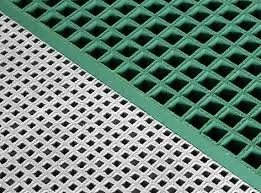
-
 Afrikaans
Afrikaans -
 Albanian
Albanian -
 Amharic
Amharic -
 Arabic
Arabic -
 Armenian
Armenian -
 Azerbaijani
Azerbaijani -
 Basque
Basque -
 Belarusian
Belarusian -
 Bengali
Bengali -
 Bosnian
Bosnian -
 Bulgarian
Bulgarian -
 Catalan
Catalan -
 Cebuano
Cebuano -
 China
China -
 China (Taiwan)
China (Taiwan) -
 Corsican
Corsican -
 Croatian
Croatian -
 Czech
Czech -
 Danish
Danish -
 Dutch
Dutch -
 English
English -
 Esperanto
Esperanto -
 Estonian
Estonian -
 Finnish
Finnish -
 French
French -
 Frisian
Frisian -
 Galician
Galician -
 Georgian
Georgian -
 German
German -
 Greek
Greek -
 Gujarati
Gujarati -
 Haitian Creole
Haitian Creole -
 hausa
hausa -
 hawaiian
hawaiian -
 Hebrew
Hebrew -
 Hindi
Hindi -
 Miao
Miao -
 Hungarian
Hungarian -
 Icelandic
Icelandic -
 igbo
igbo -
 Indonesian
Indonesian -
 irish
irish -
 Italian
Italian -
 Japanese
Japanese -
 Javanese
Javanese -
 Kannada
Kannada -
 kazakh
kazakh -
 Khmer
Khmer -
 Rwandese
Rwandese -
 Korean
Korean -
 Kurdish
Kurdish -
 Kyrgyz
Kyrgyz -
 Lao
Lao -
 Latin
Latin -
 Latvian
Latvian -
 Lithuanian
Lithuanian -
 Luxembourgish
Luxembourgish -
 Macedonian
Macedonian -
 Malgashi
Malgashi -
 Malay
Malay -
 Malayalam
Malayalam -
 Maltese
Maltese -
 Maori
Maori -
 Marathi
Marathi -
 Mongolian
Mongolian -
 Myanmar
Myanmar -
 Nepali
Nepali -
 Norwegian
Norwegian -
 Norwegian
Norwegian -
 Occitan
Occitan -
 Pashto
Pashto -
 Persian
Persian -
 Polish
Polish -
 Portuguese
Portuguese -
 Punjabi
Punjabi -
 Romanian
Romanian -
 Russian
Russian -
 Samoan
Samoan -
 Scottish Gaelic
Scottish Gaelic -
 Serbian
Serbian -
 Sesotho
Sesotho -
 Shona
Shona -
 Sindhi
Sindhi -
 Sinhala
Sinhala -
 Slovak
Slovak -
 Slovenian
Slovenian -
 Somali
Somali -
 Spanish
Spanish -
 Sundanese
Sundanese -
 Swahili
Swahili -
 Swedish
Swedish -
 Tagalog
Tagalog -
 Tajik
Tajik -
 Tamil
Tamil -
 Tatar
Tatar -
 Telugu
Telugu -
 Thai
Thai -
 Turkish
Turkish -
 Turkmen
Turkmen -
 Ukrainian
Ukrainian -
 Urdu
Urdu -
 Uighur
Uighur -
 Uzbek
Uzbek -
 Vietnamese
Vietnamese -
 Welsh
Welsh -
 Bantu
Bantu -
 Yiddish
Yiddish -
 Yoruba
Yoruba -
 Zulu
Zulu
fiberglass fertilizer tanks
Fiberglass Fertilizer Tanks A Sustainable Solution for Agriculture
In the ever-evolving world of agriculture, efficient storage and handling of fertilizers are crucial for sustaining high crop yields. Fiberglass fertilizer tanks have emerged as a game-changing alternative to traditional storage solutions, offering a plethora of benefits that are reshaping the industry's approach to fertilizer management.
Fiberglass is a composite material made of fine glass fibers embedded in a resin matrix, resulting in a robust and lightweight product. One of the most significant advantages of fiberglass fertilizer tanks is their durability. Unlike metal tanks that are prone to corrosion, fiberglass is resistant to rust and degradation from chemicals commonly found in fertilizers. This property ensures that the tanks have a longer lifespan, reducing the need for frequent replacements and maintenance.
The design flexibility of fiberglass tanks is also noteworthy. Manufacturers can easily mold and shape fiberglass to fit specific needs, allowing for customized sizes and capacities. This adaptability makes fiberglass tanks suitable for various agricultural settings, from small farms to large-scale operations. Furthermore, their lightweight nature simplifies transportation and installation, saving both time and labor costs.
fiberglass fertilizer tanks

Another compelling reason to adopt fiberglass fertilizer tanks is their environmental impact. In a world increasingly focused on sustainability, fiberglass tanks can contribute to a reduction in the carbon footprint of agricultural operations. They are recyclable, which means that at the end of their lifecycle, they can be repurposed instead of ending up in landfills. This aligns with the agricultural industry's push towards more eco-friendly practices.
Additionally, fiberglass tanks provide excellent insulation, protecting the contents from extreme weather conditions. This insulation minimizes fluctuations in temperature, ensuring that fertilizers remain stable and effective throughout their storage period. As a result, farmers can maintain the quality of their fertilizers, ensuring higher efficacy during application and better crop performance.
Safety is also a paramount concern in agricultural practices. Fiberglass tanks are non-reactive and do not emit harmful fumes, offering a safer alternative for storing potentially hazardous materials. This characteristic helps mitigate risks associated with fertilizer handling and ensures safer working conditions for farmworkers.
In conclusion, fiberglass fertilizer tanks represent a significant advancement in agricultural storage solutions. Their durability, design flexibility, environmental benefits, and safety features make them an ideal choice for modern farming. As the agriculture industry continues to embrace innovative technologies, fiberglass tanks will undoubtedly play a vital role in promoting sustainable and efficient farming practices.









